REVIEW – „Enfant terrible” of video games, “legendary hero” of game design: Hideo Kojima presents us his final chapter of his Metal Gear series, which started almost thirty years ago. In the much-anticipated finale episode – which was unfortunately ridden with the scandalous departure of Hideo Kojima himself – we will lead Big Boss, who awakes nine years later from a coma. Escaping from the hospital, he must take his revenge against the mysterious Skullface and his organization while taking part in secret and black ops military operations and building a very own base with the help of his friends. The question is whether Phantom Pain is Kojima’s final (?) masterpiece regarding the Metal Gear series or is it a flawed diamond, ridden with too many flaws to enjoy?
First of all, I must confess that I am not among the biggest fans Hideo Kojima’s works. I do appreciate his extreme effort to offer us an intricate, very complex and extremely well-designed world with many interesting heroes, clever twists in his stories and full of interesting characters. I also learned to like the sci-fi/surreal parts of his stories – I must confess that I found them a bit idiotic when I was new in Kojima’s world.
What however always bothered me, however, is stiff, bothersome control of the main characters in the older games, and especially the TONS of radio conversations and cutscenes. Even if I like interesting conversations like the next guy, I could never understand, how can Snake radio chat about so mundane things, like movies, and world events in the middle of the action – I could barely stand those, and sometimes clicked them away angrily.
However, during his very long game designer career, Kojima perfected his already great talent at making his games and made significant changes to both Ground Zeroes and Phantom Pain. For better or worse…
Silent Snake
In the extremely short Ground Zeroes we could already catch a glimpse about some of the main changes, but in Phantom Pain, they are a lot more apparent. First of all the cutscenes, which always had a crucial part in the Metal Gear series are reduced a lot here. (Yes, I know: I was just complaining about those, but I learned to like them in the long term.) After the breath-taking prolog where Big Boss escapes from the hospital where is awaken, we are quickly taken to the open world of 1984’s Afghanistan where the Muslim Mujaheddin fights almost hopelessly to the death against the Soviet forces.
The first few cut scenes are excellent but what’s a bit disturbing how Snake is silent during those. Also, I do miss David Hayter now; he has such a distinctive voice, that Kiefer Sutherland is unable to provide something equally good. Funny thing that it didn’t bother me much in Ground Forces, but in Phantom Pain, it does.
You might wonder by the way: if not in the cutscenes, where does he speak at all? Well, there’s a lot of mission tapes, where – among other taped documents – we can listen to conversations between Big Boss and his friends. I don’t hate Sutherland or something; he’s just not Snake to me. My other problem is that sometimes I had trouble to figure out, who speaks since Sutherland has such an uncharacteristic voice.
The radio conversations from the missions are missing as well. Yes, they are replaced by the conversations that we can hear on the tapes, and like I told you: they were too much in the past games, but missing them altogether is a bit too much. Yes, there are some very specific mission-related conversations between Snake and Ocelot, or Miller, but it’s not the same.
Open your world to me
Still, the main difference from the older titles is the open world experience. Instead of corridor-like places, we are given a vast world of Afghanistan and Africa in the later missions. On the plus side, it’s just an exhilarating experience to ride with Snake on his D-horse, while trying to avoid Soviet troops and military bases, or attempting to sneak on them and kill or abduct everybody with the Fulton technology. The bare lands of Afghanistan and the lush jungles of Africa are extremely well rendered on the PlayStation 4, with many specific areas where the attention to detail is even greater. I was especially in love with the piece of Afghan land, where I had to fight against Quiet, before capturing her.
Still, I must mention how I missed the human population from those battle-ridden lands. OK, so I understand, that people don’t like to live near or in war zones, but for them to be missing altogether is a bit too much.
Also, sometimes you have to ride so freaking much from one point to another to fulfill your mission (while seeing nothing more than those barren lands), that you’d wish that some auto-travel option would be present. The horse riding reminded me of Red Dead Redemption, but in a flat world without any trace of civilization. Let’s not forget that even if Afghanistan was (and unfortunately still is) a war zone, the very reason the Mujaheddin fought against the Soviets is because their army was invading their home, where their family lived in villages. There are some abandoned villages, but they are far and between and, of course, they are ALL abandoned.
Sneak? Sneak??? Sneak!
I do realize that I was just complaining at one of the most critically acclaimed game so far. Yes, there are also tons of things I just love about Metal Gear Solid V. Most of the missions themselves are incredibly fun, and they can be done in various ways. When you are approaching a base, you must plan your attack carefully and dynamically, which means that you won’t have to do almost the same things, like in the last Splinter Cell, when things went awry.
The AI of the Soviet, African and other enemies is pretty excellent: should they catch a glimpse of you sneaking, they try to investigate and hunt you down with flashlights, flares (!) and other means – of course, they will also come to you personally and call others. The rigid patrol calling mechanism, which was a bit ridiculous in older Metal Gear games is gone, and the modern enemy AI of Metal Gear Solid is both realistic and fighting against it is extremely enjoyable.
The missions and mission goals are however a mixed bag: they vary from pretty exciting to mundane “kill that officer”, “save that prisoner”, “blow up that base” kind of generic ones. I never cared less about some of the persons I had actually to save either or kill, and I DID play a lot of games like that. Still, when you are doing the mission themselves the experience is pretty fun, thanks to the dynamic structure and small details like soldiers conversing to each other while they are going somewhere while you have to follow them. No, it’s nothing like the similar and boring tails in the Assassin’s Creed games: it’s much dynamic and lifelike.
You can even jump in of the several types of vehicles: jeeps, trucks and so on. Driving them is pretty fun, but beware of being spotted!
Besides being smart, the enemy AI also adapts to your playstyle. Too many headshots? They will start to wear helmets. You rather hit them in the chest? They will learn to wear body armor than! They will also learn to spot you, if you are camping while sniping them with a rifle from afar, and will investigate and hunt you down.
Home, sweet Mother Base
The task of Big Boss (or “Venom Snake” as he is called in Phantom Pain) isn’t specifically to fight against Soviets but take various mercenary missions from different clients. Like in Metal Gear Solid: Peace Walker Snake is once again building his private army called Diamond Dogs on a Mother Base. To build the base up from scratch, we will have to abduct soldiers via the Fulton recovery system (like in Peace Walker), and then assign those people to fields like R&D, base building, sickbay, combat and so on. We can upgrade almost everything on the base or in our arsenal.
Some upgrades are almost insane – but in a good way – and incredibly fun to use. You can upgrade even you own prosthetic arm with super abilities, so from a crippled Big Boss of the beginning, you will become an all-powerful Big Boss. If you know, what happens to him later, this… transformation also has some philosophical significance…
Everything can be instantly delivered via your helicopter on the battlefield: from upgraded weapons to ammo, or other weapons, that you have already developed. Oh yes… even your helicopter can be upgraded!
By the way: those myriads of weapons have some use finally, unlike those of the older Metal Gear Solid games.
Hey, buddy! Are you coming with me?
Besides those weapons, you will also have “buddies” on the battlefield. You can change which one you take on the mission. Your first buddy is a horse, and you can only have the others (Diamond Dog, the Walker, Quiet, the female sniper, the biped walker, etc.) when you are already in Africa. They have all different uses, and they are all pretty fun. They are also getting better and better as you use them, and you can upgrade them as well. D-Dog (which will grow from the little puppy, that you found) will be better at not only sniffing out everything but also killing enemy soldiers. Quiet will have a silencer on his sniper gun, so she can kill everybody from afar silently, which will be a great tactical advantage.
It has to be said, that those upgrades lower rather significantly the difficulty as well, and some missions will be a bit too easy thanks to our overpowered buddies.
And… cut!
Perhaps the best thing about every Metal Gear Solid is the story itself, which integrates now almost 30 years of Metal Gear history. Big Boss himself was already present in the very first Metal Gear, in 1987 and more and more characters were added later.
The story starts with an adamant prolog, with a crazy escape from the hospital where Snake awakens, then later, gradually it slows down a bit, with significantly fewer cutscenes. Fortunately, near the end of the Afghan level, it picks up again, and it will be unyielding in the second part of the game.
Unfortunately, it still feels a bit weaker compared to older titles. Also, there were some parts cut from the title, as the very final boss battle for example. Words cannot describe our anger against Konami because of this decision and we hope, that someday the parts that were cut from the game will be restored – at least in the form of a DLC.
Rough diamond
I enjoyed Metal Gear Solid V: The Phantom Pain, but contrary to some of the global press, I don’t think that it’s a masterpiece. There are too many flaws for that, and while the second part of the game is considerably more exciting and better made, still there are too many generic and boring missions in the lifeless Afghanistan world.
Same goes for the story: the conclusion is breathtakingly good, but I still miss David Hayter or, at least, a Kiefer Sutherland, who would speak more also the cutscenes feels like a… phantom pain.
And yes, seeing the staff list and, of course, the name of Hideo Kojima like 500 times do get annoying a lot, and I did get an “OK! OK! I get it, Kojima-san! YOU did game!” feeling. I understand the circumstances, but it’s still a game on its own and as such showing the staff list at EVERY goddamn mission gets irritating. If THAT was Kojima’s goal, then it’s a mission accomplished.
Still, with all its faults, Metal Gear Solid V: The Phantom Pain is a wonderful goodbye from one of the world’s most creative game designer. Missing him from Konami will cause us a… phantom pain indeed…
-BadSector-
Pro:
+ Breathtaking story
+ Tons of customizations, buddies and more!
+ Some excellent missions, with perfect AI, cool control
Against:
– The open world is a bit rough on the edge
– Story parts and boss battles (!) from the end missing
– Some generic and boring missions, lots of travel
Publisher: Konami
Developer: Kojima Productions
Genres: Action-adventure, stealth
Publication: Sept. 1. 2015
Metal Gear Solid V: Phantom Pain
Gameplay - 9.2
Graphics - 9
Story - 9.4
Music/audio - 8.5
Ambiance - 9.3
9.1
AWESOME
Hideo Kojima's final chapter in his work of gaming art is the breathtaking story of Big Boss and also an extremely well crafted sneaking game, with tons of customizations and an intricate base building. Unfortunately due to some design decisions concerning the open world structure and some cut content, it's not the masterpiace it could have been, but still an awesome game - a "rough diamond" of some sort.

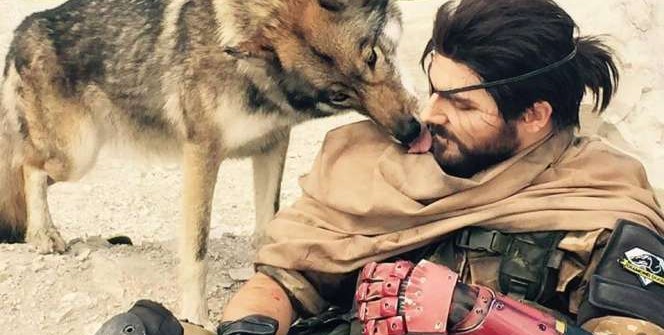













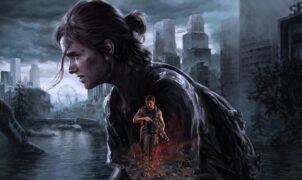
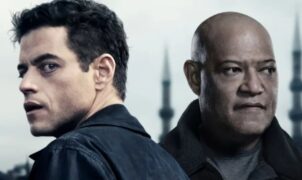


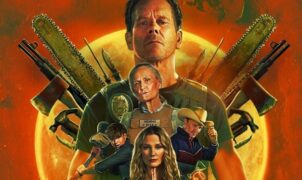




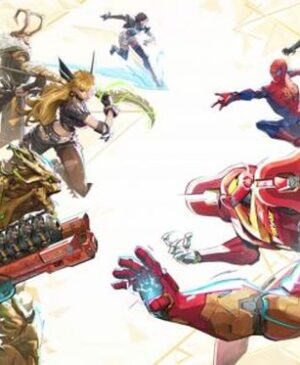

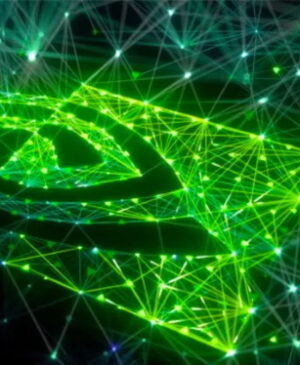
Leave a Reply